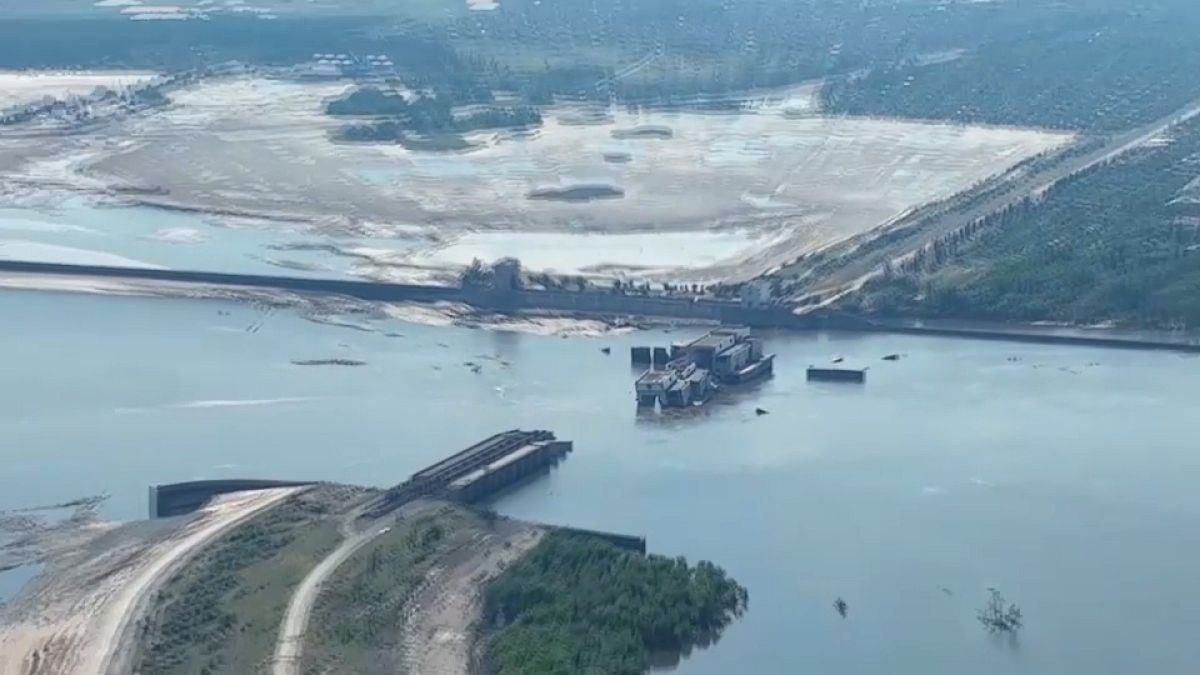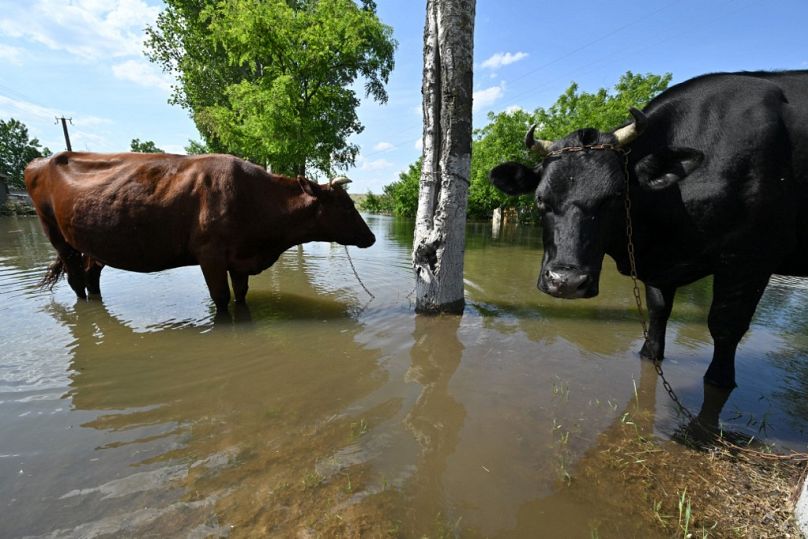"Inefficient" and bad for the environment – some environmentalists are arguing against the reconstruction of the Kakhovka Dam, despite the widespread devastation caused by its breach.
More than a month has passed since the explosion at the Kakhovka Dam in southern Ukraine. Water levels have since declined and fighting has intensified along the Dnieper River, which marks the line between Kyiv and Moscow’s battling armies.
When the dam collapsed, dozens of people died and thousands more were faced with homelessness and lack of drinking water. And much of the area's environment and agriculture have been heavily damaged.
"The whole ecosystem - basically the whole ecosystem - of [the] reservoir is ruined and there is [a] certain precondition for [the] revival of [the] ecosystem of the more free-flowing river," Eugene Simonov, an expert of the Working Group on Environmental Consequences of the War in Ukraine, told Euronews.
"However, it's associated with a catastrophic change for all local species, with a new species that will be reestablished there [which is] more adapted to the river, not to the reservoir. And it's a complete catastrophe for people who are used to different environments."
The water levels of the reservoir dropped by around 70 per cent after the breach. And the resulting ecological disaster could take decades to fully unfold.
Crimea could dry up without irrigation while agriculture in Ukraine's Kherson and Zaporizhzhia regions has been heavily damaged.
But despite this, some environmentalists like Simonov are arguing against restoring the reservoir.
Simonov said: "The idea that someone will come in and rebuild this inefficient reservoir looks very strange to me as an environmentalist in the 21st century."
He added that the dam had previously provided residents with "very low-quality water with a lot of pollution" and caused more water to evaporate than was supplied for agriculture.
The reservoir also took up more than 2,000 square kilometres of land, and Simonov argues that this area could have been "used for many other environmental and economic purposes, much more productively."
"I as [an] ecologist, would not support and would not advise to go for recreation of the reservoir.
"But would support very intensive research and actions to help people to adapt to a new reality and to help to supply needs by other more modern means, which are more ecologically friendly and more sustainable in the long run."
The regions most affected by the Kakhovka Dam breach have also been heavily impacted by fighting, making new research and initiatives even more difficult.
Nevertheless, Simonov argued that it was the right choice.
"The whole idea of revival after the war. You should things think how to do things better," he said.
"You should not think how to get yourself into a pre-war situation. You see? Because it could be the worst thing you can achieve. It's actually not unique not endemic to that area.
"It's a general idea on how you think about recovery. You want to have modernisation and more ecologically-sustainable life after recovery. Otherwise, you are in trouble."



